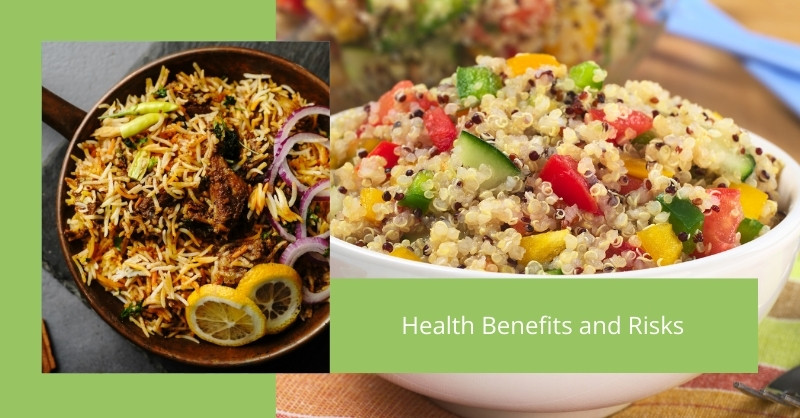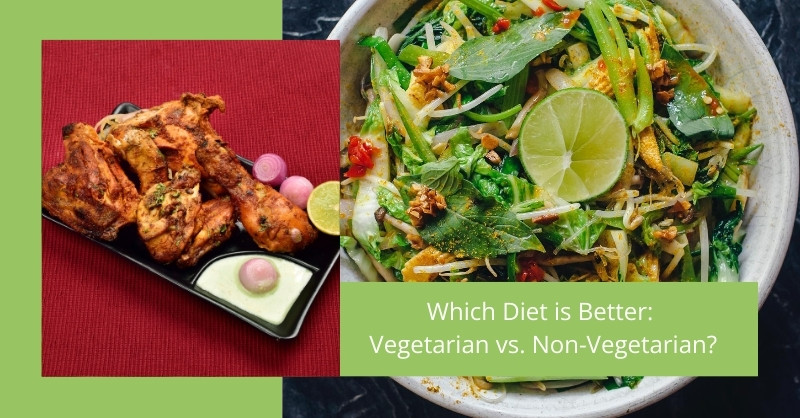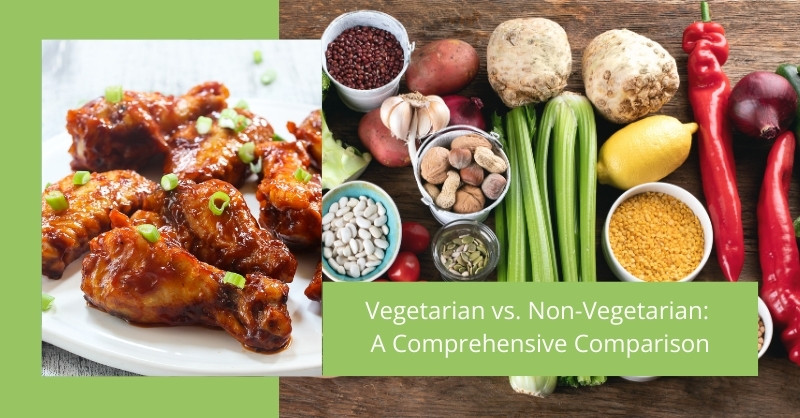The debate between vegetarian vs. non-vegetarian diets is one of the most discussed topics in nutrition and health. Both diets have their unique advantages and challenges, and the choice between them often depends on individual preferences, health goals, ethical beliefs, and environmental concerns.
A vegetarian diet focuses on plant-based foods such as fruits, vegetables, grains, nuts, seeds, and legumes. Some vegetarians also include dairy and eggs, while vegans exclude all animal products. On the other hand, a non-vegetarian diet includes meat, poultry, fish, and other animal-derived products.
The key difference lies in their nutritional profiles, health impacts, and environmental footprints. While vegetarian diets are often praised for their heart-healthy benefits and lower environmental impact, non-vegetarian diets are known for providing complete proteins and essential nutrients like vitamin B12 and heme iron. This comprehensive comparison will explore the pros and cons of both diets to help you make an informed decision.
Understanding Vegetarian vs. Non-Vegetarian Diets
A vegetarian diet primarily consists of plant-based foods such as fruits, vegetables, grains, nuts, and seeds. Some vegetarians also include dairy products and eggs. On the other hand, a non-vegetarian diet includes meat, poultry, fish, and other animal products. The choice between these diets often depends on cultural, ethical, and health-related factors.
Types of Vegetarian Diets
- Lacto-vegetarian: Includes dairy but excludes eggs and meat.
- Ovo-vegetarian: Includes eggs but excludes dairy and meat.
- Lacto-ovo vegetarian: Includes both dairy and eggs but excludes meat.
- Vegan: Excludes all animal products, including dairy, eggs, and honey.
Types of Non-Vegetarian Diets
- Pescatarian: Includes fish but excludes other meats.
- Flexitarian: Primarily vegetarian but occasionally includes meat.
- Omnivore: Includes all types of animal products.
Nutritional Comparison: Vegetarian vs. Non-Vegetarian
One of the most significant aspects of the vegetarian vs. non-vegetarian debate is their nutritional profiles. Let’s break down the key nutrients and how they compare in both diets.
| Nutrient | Vegetarian Sources | Non-Vegetarian Sources |
|---|---|---|
| Protein | Beans, lentils, tofu, quinoa, nuts | Chicken, fish, beef, eggs |
| Iron | Spinach, lentils, chickpeas, fortified cereals | Red meat, poultry, fish |
| Vitamin B12 | Fortified foods, supplements | Meat, fish, dairy, eggs |
| Omega-3 Fatty Acids | Flaxseeds, chia seeds, walnuts | Fish, fish oil |
Protein Intake: Vegetarian vs. Non-Vegetarian
Protein is essential for muscle repair and overall health. While non-vegetarian diets are often considered superior for protein intake, vegetarian diets can also provide adequate protein through plant-based sources. Here’s a donut chart comparing protein sources in both diets:
Health Benefits and Risks

Both vegetarian and non-vegetarian diets have their own set of health benefits and risks. Let’s explore them in detail.
Benefits of Vegetarianism
- Lower risk of heart disease: Vegetarian diets are typically lower in saturated fats, which can reduce the risk of heart disease.
- Better weight management: Plant-based diets are often lower in calories and higher in fiber, which can help with weight loss and maintenance.
- Reduced cancer risk: Studies have shown that vegetarians have a lower risk of certain cancers, such as colon cancer, due to higher intake of antioxidants and fiber.
- Improved digestion: The high fiber content in vegetarian diets promotes healthy digestion and prevents constipation.
Benefits of Non-Vegetarianism
- Complete protein sources: Animal products provide all essential amino acids, making them a complete protein source.
- Rich in vitamin B12: Vitamin B12 is naturally found in animal products and is crucial for nerve function and red blood cell production.
- Better iron absorption: Heme iron from animal sources is more easily absorbed by the body compared to non-heme iron from plant sources.
- Supports muscle growth: The high-quality protein in non-vegetarian diets is ideal for muscle repair and growth, especially for athletes.
Health Risks of Vegetarian vs. Non-Vegetarian Diets
While both diets have benefits, they also come with potential risks:
- Vegetarian Risks:
- Vitamin B12 deficiency: Since B12 is primarily found in animal products, vegetarians may need supplements or fortified foods.
- Iron deficiency: Plant-based iron is less bioavailable, which can lead to anemia if not properly managed.
- Omega-3 deficiency: Vegetarians may lack EPA and DHA, essential omega-3 fatty acids found in fish.
- Non-Vegetarian Risks:
- Heart disease: High intake of red and processed meats can increase cholesterol levels and heart disease risk.
- Cancer risk: Excessive consumption of processed meats has been linked to colorectal cancer.
- Weight gain: Non-vegetarian diets can be high in calories and unhealthy fats, leading to obesity.
Environmental Impact: Vegetarian vs. Non-Vegetarian
The environmental impact of our dietary choices is a growing concern. Here’s how vegetarian and non-vegetarian diets compare:
| Aspect | Vegetarian Diet | Non-Vegetarian Diet |
|---|---|---|
| Carbon Footprint | Lower due to reduced meat production | Higher due to livestock farming |
| Water Usage | Less water-intensive | High water usage for meat production |
| Land Usage | Requires less land for crop cultivation | Requires more land for grazing and feed |
Ethical Considerations
Many people choose vegetarianism for ethical reasons, such as animal welfare and reducing harm to living beings. Non-vegetarian diets, on the other hand, often face criticism for supporting industrial farming practices, which can involve inhumane treatment of animals.
Which Diet is Better: Vegetarian vs. Non-Vegetarian?

The question of which diet is better—vegetarian or non-vegetarian—does not have a straightforward answer. Both diets have their strengths and weaknesses, and the best choice depends on individual factors such as health needs, ethical beliefs, and environmental concerns.
Health Perspective
- Vegetarian Diets: Ideal for those looking to improve heart health, manage weight, and reduce cancer risk. However, careful planning is required to avoid nutrient deficiencies.
- Non-Vegetarian Diets: Suitable for individuals needing high-quality protein, vitamin B12, and heme iron. However, moderation is key to avoiding health risks associated with excessive meat consumption.
Ethical and Environmental Perspective
- Vegetarian Diets: Often chosen for ethical reasons, such as animal welfare, and have a lower environmental impact due to reduced greenhouse gas emissions and water usage.
- Non-Vegetarian Diets: Criticized for supporting industrial farming practices, which can involve inhumane treatment of animals and contribute to environmental degradation.
A Balanced Approach
For those who find it challenging to choose between the two, a flexitarian diet offers a middle ground. This approach emphasizes plant-based foods while allowing occasional meat consumption, combining the benefits of both diets.

Final Thoughts
The vegetarian vs. non-vegetarian debate is complex, with no one-size-fits-all answer. Both diets can be healthy and sustainable if properly planned. The key is to focus on balanced nutrition, whether you choose a plant-based or meat-inclusive diet. Consulting a healthcare professional or nutritionist can help you create a diet plan tailored to your needs.
For further reading, check out these resources:



